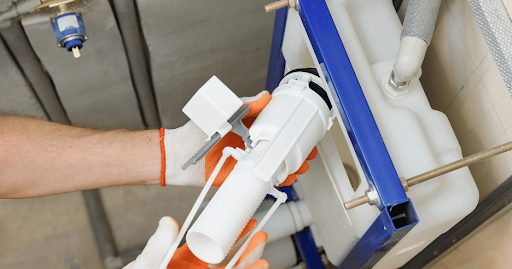Choosing the right siphon for your needs can be a difficult task. There are many factors to consider when deciding on the best siphon for your home or business. This guide will help you understand the different types of siphons, how they work, and what features to look for when selecting one.
Types of Siphons
There are two main types of siphons: gravity and pressure. Gravity siphons rely on the weight of the liquid to move it through a tube. While pressure siphons use an external force (such as air or water pressure) to create suction to draw the liquid up into the tube.
Gravity Siphon
A gravity siphon is simple yet effective and is best used for low-flow applications. These siphons are typically used to drain tanks or containers with low levels of liquid. You can also use gravity siphons in sprinkler systems when you desire a slow flow.
Pressure Siphon
A pressure siphon uses an external force (usually air or water pressure) to create suction to draw the liquid up into the tube. These siphons are best suited for high-flow applications. Such as draining larger tanks or containers with large amounts of liquid. Sprinkler systems can also use pressure siphons when desiring a high flow rate.
Features to Look For
When selecting a siphon, there are several features to consider. These features are size, flow rate, materials, and maintenance requirements.
Size
The size of the siphon should match the size of your application.
Flow Rate
You also want to consider the flow rate – too high or too low can cause problems with functionality.
Capacity
Look for a siphon hose that can handle the amount of liquid you need to move. Pay attention to the capacity of the siphon, as this will determine its effectiveness.
Materials
The materials used in your siphon should be able to withstand exposure to the liquids it is transferring. Look for corrosion-resistant materials such as stainless steel, brass, or plastic. The material used in the construction of a siphon is also an important factor to consider. Different materials such as plastic, metal, and rubber can affect how well a siphon functions. Make sure to select a material. That will be able to withstand your application’s specific conditions.
Design
The design of the siphon hose should be simple and efficient. Look for a design that is easy to use and requires minimal maintenance. Look for siphons with adjustable flow rates so you can control the flow rate as needed.
Installation and Maintenance
Look for a siphon that requires minimal maintenance and can be easily cleaned or replaced when necessary. When it comes to installation and maintenance, gravity siphons are easier to install and need less maintenance than pressure siphons. Installing pressure siphons often requires the expertise of a professional since they involve more components like air compressors or pumps. Also, pressure siphons will need regular cleaning and maintenance to ensure proper functioning.
Safety
Regardless of the type of siphon you choose, safety should be a top priority. Siphons are designed to move liquid from one container to another. If not installed and maintained, they can cause serious injury or death. Make sure the siphon you select is suitable for your application and follow all instructions for proper installation and maintenance.
Cost
When selecting a siphon, the cost is also an important factor to consider. Depending on your application and needs, you may find that one type of siphon is more cost-effective than another. Make sure to compare prices and features when choosing the right siphon for your project. Look for a siphon that is within your budget and offers the features you need.
Summarizing
Choosing the right siphon hose for your needs can be a difficult task. Different types of siphons are available, including gravity and pressure models. Features to look for when selecting a siphon include size, flow rate, materials, and maintenance requirements. It is also important to consider cost, safety, and material when selecting the right model for your application. Be sure to compare prices and features before purchasing to get the best value for your money.
Brand
When selecting a siphon, it is important to consider the brand as well. Different brands may offer different features or warranties. That could make one siphon more suitable for your application than another. But, be sure to do your research and read reviews before buying a product from any particular brand.
Conclusion
Selecting the right siphon for your needs can be a daunting task. By understanding the different types of siphons, how they work, and what features to look for when selecting one, you can make an informed decision that best suits your application. With the right information, you’ll be able to choose the perfect siphon for your home or business.


